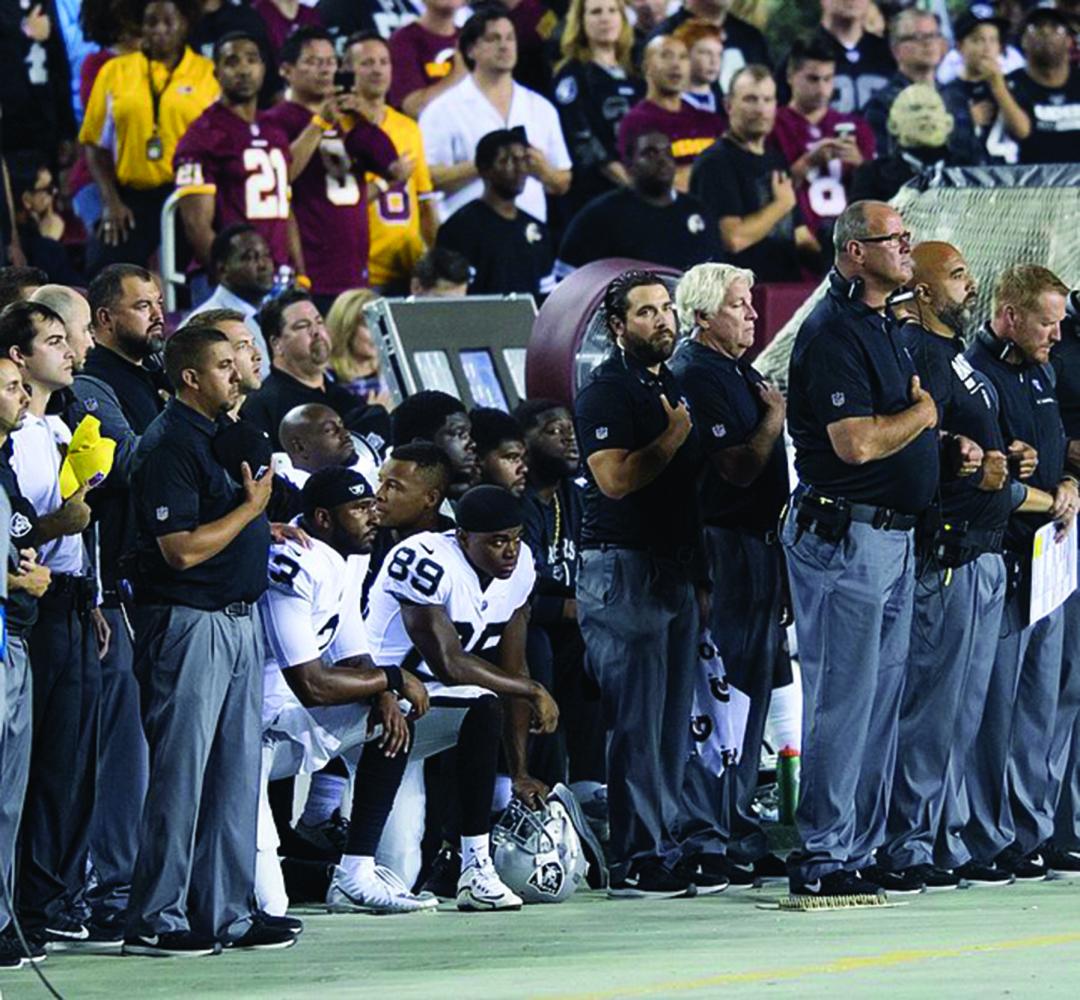Readers are responsible for choosing what they read
NFL players protest police brutality. The new Travel Ban. Puerto Rico’s post-hurricane devastation. The world’s stories in the past week has overwhelmed readers. When people check on the weekly news, they get slammed with all these stories. With no way to read them all, it can seem like the world is spiraling down. How can we as readers prioritize the news?
Readers should initially be able to categorize news based on significance to the world and themselves with topics such as the economy, health, political tensions, natural and humanitarian disasters, entertainment and sports.
While the interest of the reader should allow them to pay attention to the stories that peak their interest the most, they should be able to differentiate between the news that does or does not have an impact on the future of their community, nation or world.
Recently, the devastation on the island nation of Puerto Rico from Category 5 Hurricane Maria received much less attention in the news than the disaster that Category 4 Hurricane Harvey caused in Southern Texas. It is up to both the media and the audience to take the initiative to learn about events that impact a great number of people but don’t get as much attention.
Readers should also inform themselves of in which situations certain news stories deserve more attention than others. It is up to them whether they want to follow repetitive stories or put them aside in their mind.
For example, a black man, Michael Newby, was recently shot in a car chase by a white police officer in Louisville. While the event was covered mostly due to the racist comments of the police officer during the chase, we, as readers, must understand that this is only one in many cases of the issue of police brutality. News that presents recent issues in many cases deserves priority over articles that cover recurring stories, though we need to follow the latter as well.
News can be so easily attained with your smart phone, but it’s easy to often get distracted by entertaining stories of outrageous comments by political leaders or your favorite star’s announced pregnancy. Often times, these kinds of stories take attention away from the news that matters. Media outlets that provide these popular articles do not compare to the level of importance of a real groundbreaking story.
The public often pays close attention to news stories that are emphasized across a plethora of different news and social media outlets. Because of this, we should be able to control what news is allowed to reach us. Certain media platforms such as Facebook, Twitter and Instagram allows users to filter their news feeds to tailor their interests. It is important to use these helpful tools in order to pay attention to the news that matters to them.
Prioritizing news is all up to the reader, whether you want a news feed of significant events and world catastrophes or even of the new Kylie Jenner makeup set. However, you shouldn’t let social media outlets feed you irrelevant stories. Instead, feed yourself with important news.









